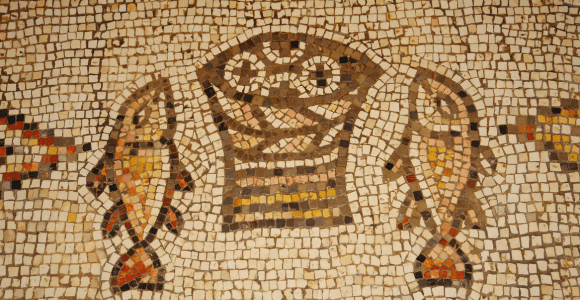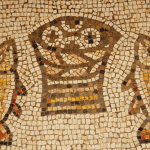
This is a universal truth that has repeatedly been proven. Whether we speak in evolutionary terms of our species’ survival, or in economic, political, or social terms, mutual commitment to the thriving of all is the path of life. (One example of a scholarly work that over and over again demonstrates these lessons to be true is The Spirit Level: Why equality is better for everyone by R.G. Wilkinson and K. Pickett. See also How economic inequality harms societies.)
Welcome Readers! Please subscribe to Social Jesus Here.
(Read this series from its beginning here.)
We have discussed repeatedly over the past few weeks how marginalized and disenfranchised Jesus followers very early in the history of Jesus followers saw in Jesus’ teaching a path of concrete salvation in the here and now. The kind of community that Jesus cast before the imaginations of this listeners pointed toward ways they could thrive together: a kind of salvation. As Stephen Patterson puts it, “The empire of God was a way to survive” (in The Lost Way: How Two Forgotten Gospels Are Rewriting the Story of Christian Origins, p. 75, see also Our Dependence on One Another).
Again, Matthew’s gospel ties this story of resource-sharing and mutual thriving to Jesus’ last supper with his disciples: “While they were eating, Jesus took bread, and when he had given thanks, he broke it and gave it to his disciples.” (Matthew 26:26)
Today many Christians commemorate that supper with a small wafer or cracker and a one-ounce cup of juice or sip of wine from a communal grail. This hardly represents the daily communal full course meals early Jesus followers held, where those with more than they needed shared with those who didn’t have enough.
“All the believers were together and had everything in common. They sold property and possessions to give to anyone who had need. Every day they continued to meet together in the temple courts. They broke bread in their homes and ate together with glad and sincere hearts.” (Acts 2:44-46, emphasis added.)
When the believers lost sight of the purpose of this meal, or the social location of the church changed, they received correctives like Paul’s letter to the Corinthians:
“When you come together, it is not the Lord’s Supper you eat, for when you are eating, some of you go ahead with your own private suppers. As a result, one person remains hungry and another gets drunk. Don’t you have homes to eat and drink in? Or do you despise the church of God by humiliating those who have nothing? What shall I say to you? Shall I praise you? Certainly not in this matter!” (1 Corinthians 11:20-22)
Forgetting the communal purpose of the Eucharist and its lessons of sharing our resources with one another when we have more than we need was equated with eating the bread or drinking the cup of the Lord “in an unworthy manner” and being “guilty of sinning against the body and blood of the Lord.” (1 Corinthians 11:27)
Again, the early church had a much less individualistic culture than those many Christians practice privately and personally today. Jesus’ teachings taught followers to love their neighbors as themselves. We’ll consider the implications of this same teaching for us today, next.
(Read Part 3)













